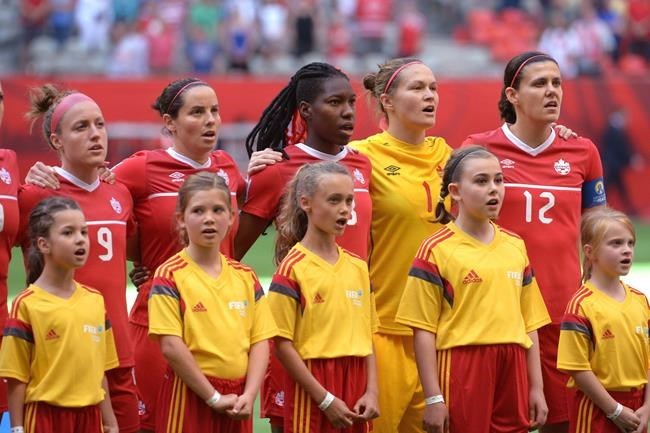Canada's soccer fields, tennis courts and swimming pools are reopening after the pandemic, but a new study finds that many girls across the country may not go back to the sports they loved.
A study released by Canadian Women & Sport and E-Alliance on Tuesday found one in four girls who participated in sport at least once a week before COVID-19 has not committed to returning.
That could mean 350,000 girls miss out on the benefits and even more kids could be impacted down the road, said Canadian Women & Sport CEO Allison Sandmeyer-Graves.
“The risk of that is that snowball effect," she said. "Because as girls drop out, the girls still playing, they see their friends leaving. And then they have fewer girls to play with and fewer opportunities for competition. And so it really starts to diminish the quality of their experience and makes it more likely that they’ll leave sport as well."
What struck Sandmeyer-Graves about the study's findings wasn't the numbers but the comments from girls and families talking about the impact not playing sports had on their physical and mental health.
"Most girls on my basketball team are really depressed. Some failed school courses. Lots have eating disorders," one 17-year-old said in the survey of more than 5,000 families.
Girls aged six-12 reported missing friends as the top impact of not being involved in sport due to COVID. Teens aged 13-18 said their physical and metal health was impacted most.
"I feel I don't like my body the way it looks now, and I feel lazy stuck at home without physical activities and social connection," a 16-year-old said.
The testimonials show the impact the pandemic has had on kids, said Sandmeyer-Graves.
"I believe that just really reinforces just how valuable sport is for girls and also how important it is that we work to get girls playing again as soon as possible and as many girls as possible," she said.
Girls already face a number of barriers to participating in sports, she added, including costs, an inability to access facilities and teams, and a lack of confidence.
While the pandemic has been difficult, there's an chance to reshape sports for girls as they get back to courts, pools and fields, Sandmeyer-Graves said. She noted that before COVID-19, one in three girls dropped out of sports in their teens, and coaches, parents and others now have a chance to find ways of keeping them involved.
“It’s a really good time to question or challenge the status quo and say ‘Why isn’t it working for girls? What are we missing and what could we be doing differently?’”
Empathy will be key as kids come back to sports, Sandmeyer-Graves said. Some have seen their bodies change. Others have lost confidence in their skills.
“We just have to forget what we think we know, be really curious, ask questions. And always be really encouraging in supporting the girls to move their bodies," she said.
Empathy will be key, she added, and organizers, coaches and parents should talk to girls about what they're feeling, what they like about sport, and what they want to achieve. They should also avoid talk about kids' bodies, whether the comments are positive or negative.
"Just go back to the basics," Sandmeyer-Graves advised. "Start with the fundamentals and build again. Get them moving, get them regaining confidence and trust and their ability to move with those skills, with those fundamental building blocks and then get back to those sport-specific skills and games."
It's not too late to make sure young women across the country get back to the sports they love, she added.
"We’ll need to be creative and we’ll need to be innovative, but we have to commit to solving this," she said. "And I think there’s still that chance present to change the tide on this."
This report by The Canadian Press was first published July 13, 2021.
Gemma Karstens-Smith, The Canadian Press




